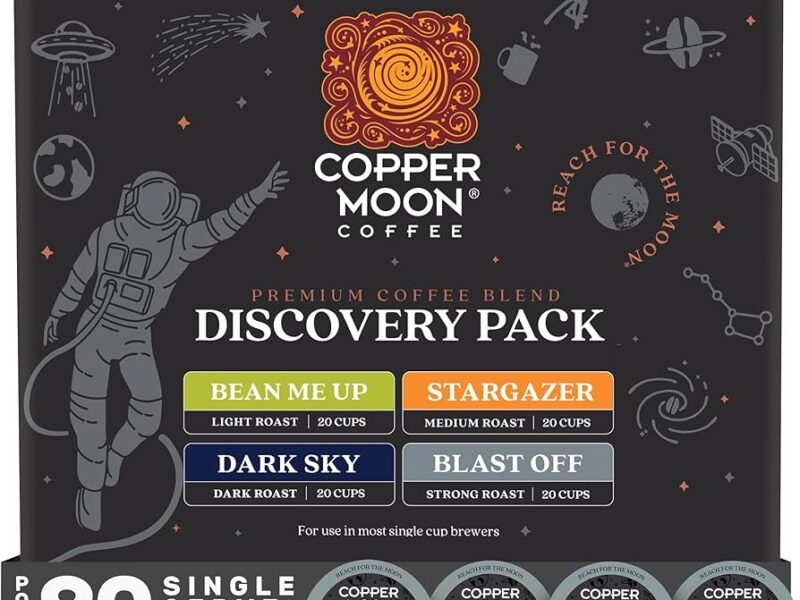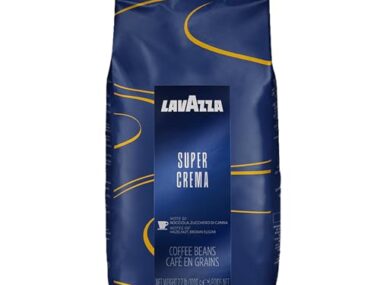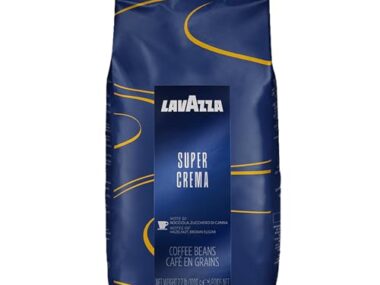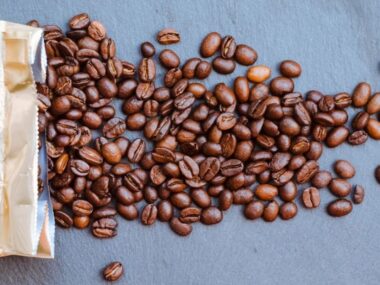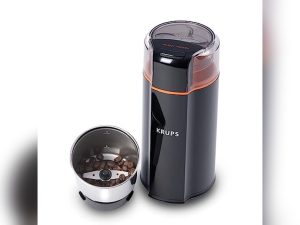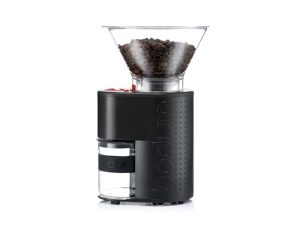Have you ever wondered which coffee bean stands out as the most premium? With so many varieties available, choosing the right one can feel overwhelming.
The aroma that fills your kitchen, the richness that dances on your taste buds, and the smoothness that lingers in your cup are all influenced by the bean you choose. If you’re seeking a coffee experience that is unparalleled, you’re in the right place.
This article will unveil the secrets behind the most sought-after coffee beans and guide you in selecting the one that suits your refined taste. Discover the magic hidden within these beans and elevate your coffee ritual to new heights. Let’s dive in and explore the luxurious world of premium coffee beans together.
Types Of Coffee Beans
Coffee enthusiasts often debate which coffee bean holds the title of the most premium. The answer isn’t simple, as it depends on various factors such as taste, aroma, and rarity. Understanding the different types of coffee beans can help you appreciate what makes each one unique. Let’s explore the primary types of coffee beans: Arabica, Robusta, Liberica, and Excelsa.
Arabica
Arabica beans are the most popular coffee beans worldwide. They are known for their smooth flavor and low acidity. These beans are grown at high altitudes, usually between 600 and 2,000 meters. This environment contributes to their refined taste.
Key characteristics of Arabica beans include:
-
Delicate flavor with hints of fruit and sugar
-
Lower caffeine content compared to other beans
-
Sensitive to climate changes and diseases
Arabica beans are often considered premium due to their complex flavors. They’re frequently used in specialty coffee blends. The effort required to grow them adds to their value. Below is a comparison table highlighting their features:
|
Feature |
Details |
|---|---|
|
Altitude |
600-2000 meters |
|
Flavor |
Fruity, sweet |
|
Caffeine Content |
Low |
Robusta
Robusta beans are known for their strong and bold flavor. They are often used in espresso blends and instant coffee. These beans thrive at lower altitudes and are more resistant to pests and diseases.
Key characteristics of Robusta beans include:
-
Strong, harsh flavor with nutty undertones
-
Higher caffeine content
-
Dense and rich crema in espresso
Robusta is less expensive than Arabica. Its robust nature makes it a favorite for those who enjoy a strong cup of coffee. Despite its lower cost, many appreciate its intense flavor. Here’s a table summarizing Robusta’s features:
|
Feature |
Details |
|---|---|
|
Altitude |
Lower than 600 meters |
|
Flavor |
Strong, nutty |
|
Caffeine Content |
High |
Liberica
Liberica beans are less common but offer a unique flavor profile. They are grown in specific regions, primarily in the Philippines and Malaysia. These beans are larger than other types and have an unusual shape.
Key characteristics of Liberica beans include:
-
Distinct floral and fruity aroma
-
Smoky and woody taste
-
Irregular bean shape
Liberica’s rarity makes it a special choice for coffee lovers. It’s not widely available, which adds to its allure. The unique taste appeals to those seeking something different. Below is a table outlining Liberica’s features:
|
Feature |
Details |
|---|---|
|
Altitude |
Varies |
|
Flavor |
Smoky, woody |
|
Availability |
Rare |
Excelsa
Excelsa beans are often classified as a variety of Liberica. They are grown mainly in Southeast Asia. These beans have a tart, fruity profile that makes them stand out.
Key characteristics of Excelsa beans include:
-
Tart, fruity flavor
-
Light body with a complex taste
-
Commonly used in blends to enhance flavor complexity
Excelsa adds depth to coffee blends. Its unique taste profile is sought after by those who enjoy a diverse range of flavors. Although not as well-known as Arabica or Robusta, it holds its own among coffee connoisseurs. Here’s a table detailing Excelsa’s features:
|
Feature |
Details |
|---|---|
|
Flavor |
Tart, fruity |
|
Body |
Light |
|
Usage |
Blends |
Factors Determining Premium Quality
The question of which coffee bean is the most premium can spark intense debates among coffee aficionados. Several factors determine the quality of coffee beans, elevating them to premium status. These factors include growing conditions, processing methods, flavor profiles, and sourcing practices. Understanding these elements can help in appreciating the complexity behind selecting the finest coffee beans.
Growing Conditions
Growing conditions play a crucial role in defining a coffee bean’s quality. Certain geographical locations provide ideal climates that enhance the bean’s characteristics. Here are key elements to consider:
-
Altitude: Higher altitudes often yield beans with more complex flavors.
-
Temperature: Cool temperatures slow down bean maturation, enriching flavor development.
-
Rainfall: Consistent rainfall is essential for healthy coffee plants.
-
Soil Quality: Nutrient-rich soil contributes to robust bean growth.
Regions like Ethiopia, Colombia, and Jamaica are renowned for their unique growing conditions. These areas, often referred to as ‘coffee belts,’ boast a combination of high altitude and optimal climate.
Processing Methods
Processing methods significantly impact the final taste of coffee. The journey from bean to cup involves several techniques, each imparting distinct characteristics:
-
Washed Process: Produces clean, bright flavors by removing fruit pulp before drying.
-
Natural Process: Beans dry with the fruit intact, resulting in sweet, fruity notes.
-
Honey Process: Combines elements of both, offering balanced sweetness and acidity.
Each method requires careful management to prevent defects, ensuring the beans retain their premium qualities. The choice of processing affects not only flavor but also body and aroma.
Flavor Profiles
Flavor profiles are a direct reflection of the bean’s origin and processing. Premium coffee beans offer diverse taste experiences:
|
Region |
Flavor Notes |
|---|---|
|
Yirgacheffe, Ethiopia |
Floral, citrus, light body |
|
Blue Mountain, Jamaica |
Sweet, mild, balanced |
|
Antioquia, Colombia |
Nutty, chocolatey, medium body |
Premium beans stand out for their exceptional balance and complexity. They often exhibit unique flavors not found in standard coffee varieties.
Sourcing Practices
Sourcing practices determine the ethical and environmental impact of coffee production. Premium coffee beans often come from:
-
Fair Trade Certified: Ensures farmers receive fair compensation.
-
Organic Certifications: Indicates sustainable farming without harmful chemicals.
-
Direct Trade: Promotes transparency and quality through direct relationships with farmers.
These practices not only promote high-quality beans but also support responsible farming and community welfare. Ethical sourcing is a hallmark of premium coffee, ensuring sustainability and fairness.
Top Premium Coffee Beans
In the world of coffee, some beans stand out as the epitome of luxury and taste. These beans are cherished for their unique flavors and aromas, often commanding a high price due to their rarity and meticulous cultivation. Let’s explore the top premium coffee beans that coffee lovers around the globe seek.
Kopi Luwak
Kopi Luwak is often dubbed the most expensive coffee in the world. Its uniqueness comes from its unusual processing method. The coffee cherries are eaten by the civet, a small mammal found in Asia. After digestion, the beans are collected from the feces, washed, and roasted.
-
Origin: Indonesia
-
Flavor Profile: Smooth and earthy with hints of caramel and chocolate.
-
Price Range: $100 – $600 per pound
This process is believed to improve the flavor. The digestive enzymes of the civet alter the beans, reducing their bitterness. Due to its unique production and rarity, Kopi Luwak is a luxury item in the coffee world.
Jamaican Blue Mountain
Jamaican Blue Mountain coffee is celebrated for its mild flavor and bright acidity. Grown at elevations between 3,000 and 5,500 feet in the Blue Mountains of Jamaica, these beans benefit from the cool climate and rich soil.
-
Origin: Jamaica
-
Flavor Profile: Balanced with nutty, floral notes and a hint of chocolate.
-
Price Range: $50 – $60 per pound
Its popularity stems from its smooth taste and lack of bitterness. The coffee’s rarity is due to limited growing space and high demand. This makes Jamaican Blue Mountain coffee a prized possession among enthusiasts.
Panama Geisha
Panama Geisha coffee is renowned for its complex and aromatic profile. Originally from Ethiopia, it found a new home in Panama’s Boquete region. The Geisha variety thrives in Panama’s unique climate.
-
Origin: Panama
-
Flavor Profile: Floral and fruity with jasmine and peach notes.
-
Price Range: $100 – $250 per pound
This coffee’s popularity has surged due to its award-winning taste. The demand for Geisha has grown, making it one of the most sought-after coffees. Its distinctive flavors set it apart from other beans.
Hawaiian Kona
Hawaiian Kona coffee is cherished for its rich flavor and smooth finish. The unique growing conditions in the Kona District of Hawaii contribute to its exceptional quality.
-
Origin: Hawaii
-
Flavor Profile: Rich and smooth with hints of spice and fruit.
-
Price Range: $30 – $60 per pound
Its appeal lies in the careful cultivation and processing. Kona coffee is often hand-picked and sun-dried, ensuring the highest quality beans. The result is a coffee with a distinctive taste that coffee aficionados love.
Credit: www.reddit.com
Certifications And Grading
Understanding which coffee bean is the most premium involves exploring various aspects such as taste, origin, and most importantly, certifications and grading. These factors ensure the quality and sustainability of coffee beans. Certifications and grading are crucial because they provide a standard measure of quality, helping consumers make informed choices. They also ensure fair practices and sustainability in coffee production.
Specialty Coffee Association
The Specialty Coffee Association (SCA) plays a significant role in setting the standard for premium coffee beans. The SCA grading system evaluates coffee beans based on several criteria, ensuring they meet high-quality standards. Here’s what makes the SCA grading unique:
-
Cupping Score: Coffee beans are scored on a scale from 0 to 100. Beans scoring above 80 are considered specialty grade.
-
Defects: Grading includes an assessment of bean defects. Fewer defects signify higher quality.
-
Aroma and Flavor: A detailed analysis of aroma and flavor profiles is conducted.
The SCA certification guarantees that the coffee beans are of superior quality. This means they offer a richer taste and a unique flavor profile. For coffee enthusiasts, these certifications are a mark of quality assurance, helping them identify premium beans in the marketplace.
Fair Trade
Fair Trade certification is another key indicator of premium coffee beans. It focuses on ethical practices and ensures that farmers receive fair compensation for their products. Here are the main benefits of Fair Trade certification:
-
Fair Pricing: Farmers are paid a fair price, which helps improve their living conditions.
-
Community Support: Part of the earnings goes to community development projects.
-
Environmental Standards: Fair Trade encourages sustainable farming practices.
Consumers choosing Fair Trade certified coffee beans support ethical business practices. This certification signifies a commitment to social responsibility. It assures customers that their purchase contributes positively to the global coffee community.
Organic Certifications
Organic certifications are vital for those seeking premium coffee beans. They ensure that beans are grown without synthetic fertilizers or pesticides. The benefits of organic certifications include:
-
Environmental Impact: Organic farming promotes biodiversity and soil health.
-
Health Benefits: Organic coffee beans are free from harmful chemicals.
-
Quality Assurance: Organic certification guarantees natural growth processes.
Choosing organic certified coffee beans means opting for a healthier and environmentally friendly product. These certifications ensure that the coffee is produced under strict guidelines, providing peace of mind to health-conscious consumers. The organic label is a testament to purity and sustainability, vital for premium coffee beans.
Consumer Preferences
When it comes to choosing the most premium coffee bean, consumer preferences play a crucial role. People have different tastes and priorities when selecting their perfect cup of coffee. Some prefer a strong and bold flavor, while others enjoy a smooth and subtle taste. Price is another factor that influences choice. Some consumers are willing to pay more for a premium experience, whereas others seek value for their money. Understanding these preferences helps in identifying which coffee bean truly stands out as the most premium.
Taste Versus Price
Taste and price often go hand in hand when choosing premium coffee beans. People generally expect higher-priced beans to offer superior taste. But is this always the case?
Here’s a breakdown of what consumers often consider:
-
Flavor Profile: Richness, acidity, and aftertaste are critical.
-
Aroma: A strong aroma can enhance the coffee experience.
-
Price Point: Does the taste justify the cost?
Let’s look at a comparison:
|
Coffee Bean |
Average Price (per lb) |
Taste Rating (out of 5) |
|---|---|---|
|
Kopi Luwak |
$500 |
4.5 |
|
Jamaican Blue Mountain |
$60 |
4.7 |
|
Hawaiian Kona |
$45 |
4.6 |
While Kopi Luwak is the priciest, Jamaican Blue Mountain often gets higher taste scores. This suggests that paying more doesn’t always guarantee the best flavor.
Trends In Premium Coffee
The world of premium coffee is always evolving, with new trends emerging regularly. Here are some current trends:
-
Single-Origin Beans: Consumers prefer knowing where their beans come from.
-
Sustainable Practices: Ethical sourcing is becoming increasingly important.
-
Cold Brew Popularity: Many enjoy the smoothness of cold brew.
Single-origin coffee highlights the unique flavors of a specific region. This trend helps farmers gain recognition for their work. Sustainable practices appeal to environmentally conscious consumers. Companies that focus on ethical sourcing attract more customers. Cold brew, with its low acidity and smooth taste, is gaining a fanbase. It offers a refreshing alternative to traditional hot coffee.
These trends reflect a broader shift towards quality and responsibility in coffee consumption. People are becoming more aware of what they drink and how it impacts the world.
Personal Experience
Personal experiences often shape opinions on premium coffee. I once tried a cup of Hawaiian Kona at a local café. The smooth taste and rich aroma were unforgettable. It was pricey, yes, but every sip felt worth it.
A friend of mine swears by Jamaican Blue Mountain. She claims it’s the only coffee that gives her the energy boost she needs. The flavor is robust, yet not overwhelming. She finds it perfect for her morning routine.
Then there’s my colleague who splurged on Kopi Luwak. The experience was unique, but he felt the price was too high for regular consumption. He described the taste as earthy and bold, but not dramatically different from less expensive options.
These stories show that preferences vary widely. What feels premium to one person may not feel the same to another. It’s about finding what suits your taste and budget best.

Credit: www.amazon.com
Brewing Techniques For Premium Beans
When thinking about which coffee bean is the most premium, the brewing technique plays a crucial role. The way you brew can bring out the best flavors and aromas. Whether using a classic French Press, the precise Pour Over, or the intense Espresso method, each technique offers a unique experience. Let’s explore how these methods can enhance your premium coffee beans.
French Press
The French Press is a beloved method among coffee enthusiasts. It’s simple yet effective, emphasizing the natural oils and flavors of the bean. This method is perfect for those who enjoy a full-bodied cup.
To brew with a French Press:
-
Use coarsely ground coffee beans. This prevents sediment in your cup.
-
Measure coffee to water ratio. Typically, use 1:15 (e.g., 30g coffee to 450ml water).
-
Add coffee grounds to the press.
-
Pour hot water, just off the boil, over the grounds.
-
Stir gently and let it steep for about 4 minutes.
-
Press the plunger down slowly to separate the grounds.
The French Press method highlights the boldness of premium beans. It captures the essential oils that paper filters might absorb. This method is ideal for those who appreciate a rich and aromatic cup.
Pour Over
Pour Over is all about precision. This method allows you to control every aspect of the brewing process. It’s favored by those who enjoy a clean and nuanced coffee.
Steps for a perfect Pour Over:
-
Start with freshly ground beans, medium-fine grind.
-
Use a coffee-to-water ratio of 1:16, adjusting to taste.
-
Place a filter in the dripper and rinse with hot water. This removes any papery taste.
-
Add coffee grounds and gently tap to level.
-
Pour hot water evenly over the grounds. Begin in the center and spiral outwards.
-
Allow the coffee to bloom for 30 seconds, then continue pouring in stages.
The Pour Over method brings out the subtleties of premium beans. It offers a crisp, bright cup that highlights delicate flavors. This technique is perfect for those who enjoy exploring the intricate profiles of their coffee.
Espresso
Espresso is a concentrated coffee brew known for its robust flavor and creamy texture. This method is popular in cafes and among coffee aficionados.
To brew espresso:
-
Use finely ground coffee beans.
-
Pack the grounds tightly in the portafilter.
-
Attach the portafilter to the espresso machine.
-
Extract coffee for about 25-30 seconds. Aim for a shot with a golden crema.
Espresso captures the essence of premium coffee beans in a small, intense shot. It’s the method of choice for those who appreciate a bold and powerful coffee experience. Espresso can be enjoyed alone or as a base for various coffee drinks.
Each brewing technique offers a distinct way to enjoy premium coffee beans. Choose the method that suits your taste and enjoy the rich flavors that only premium beans can offer.

Credit: www.freepik.com
Frequently Asked Questions
What Is The Highest Quality Coffee Bean?
The highest quality coffee bean is the Arabica variety. It offers superior flavor and aroma compared to Robusta. Arabica beans are grown at high altitudes, which enhances their taste. They are low in caffeine and have a smooth, rich flavor profile, making them the preferred choice for gourmet coffee lovers.
What Is The Most Luxurious Coffee Bean?
The most luxurious coffee bean is Kopi Luwak. Known for its unique processing, it involves civets eating coffee cherries. After digestion, the beans are collected, cleaned, and roasted. This rare coffee offers a smooth, rich flavor, making it highly sought after by coffee enthusiasts worldwide.
What Is The Most Superior Quality Coffee Bean?
The most superior quality coffee bean is the Arabica bean. Known for its smooth flavor and aromatic profile, Arabica is often preferred by coffee connoisseurs. It grows in high altitudes and requires specific climate conditions, contributing to its premium status in the coffee industry.
What Is The Most Luxury Coffee?
Kopi Luwak is considered the most luxurious coffee. It originates from Indonesia and is made using partially digested coffee cherries eaten by civets. Its unique production process and limited availability make it highly sought after by coffee connoisseurs worldwide.
Conclusion
Choosing the most premium coffee bean depends on personal taste. Each type offers unique flavors and aromas. Some prefer the rich notes of Arabica. Others enjoy the strong kick of Robusta. Then there’s the smooth taste of Liberica. Or the rare, exotic Excelsa.
Explore different beans to find your favorite. Consider factors like origin, roast level, and processing. Remember, premium means quality and satisfaction. Not just price. Enjoy the journey of discovering your perfect cup. Happy brewing!

